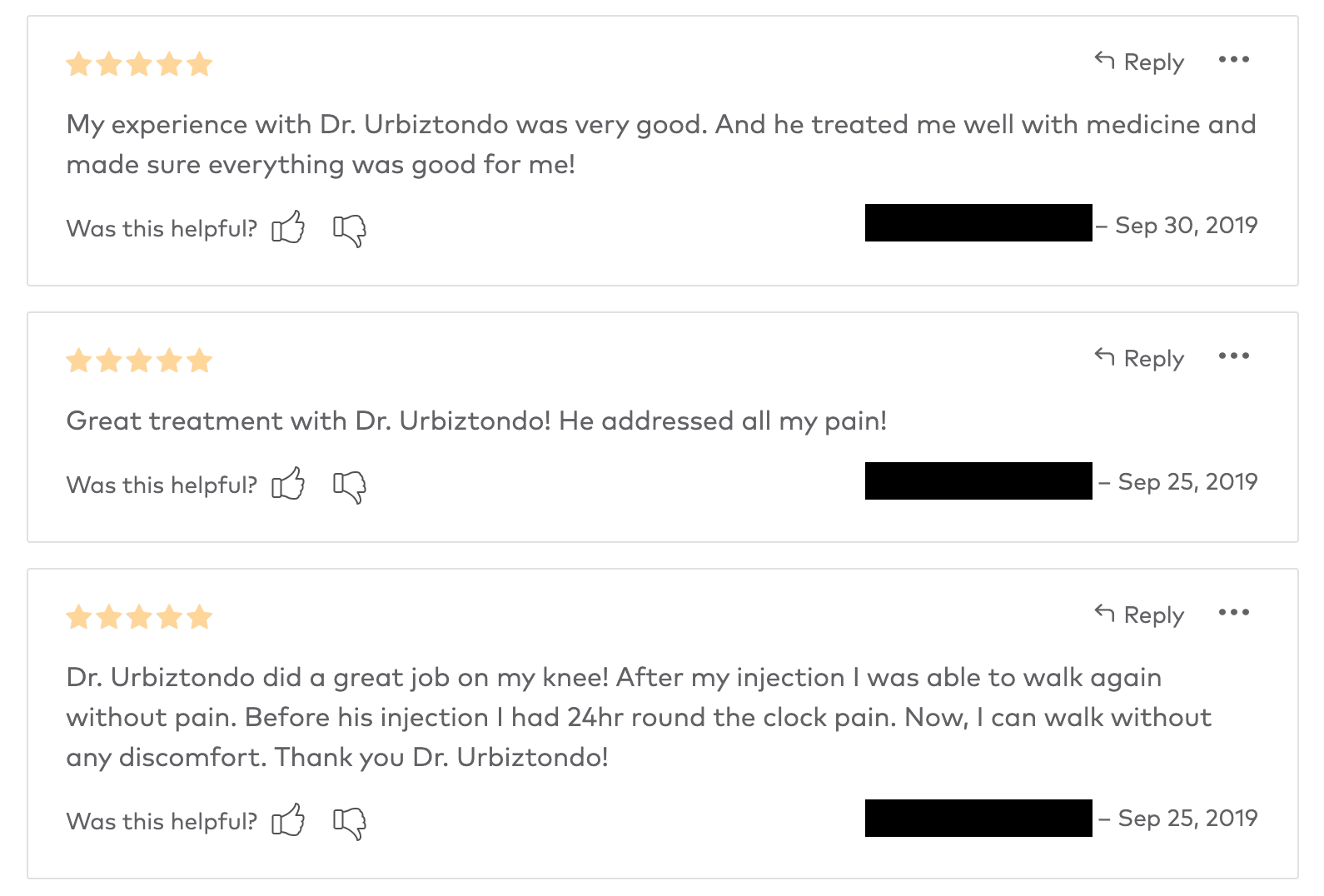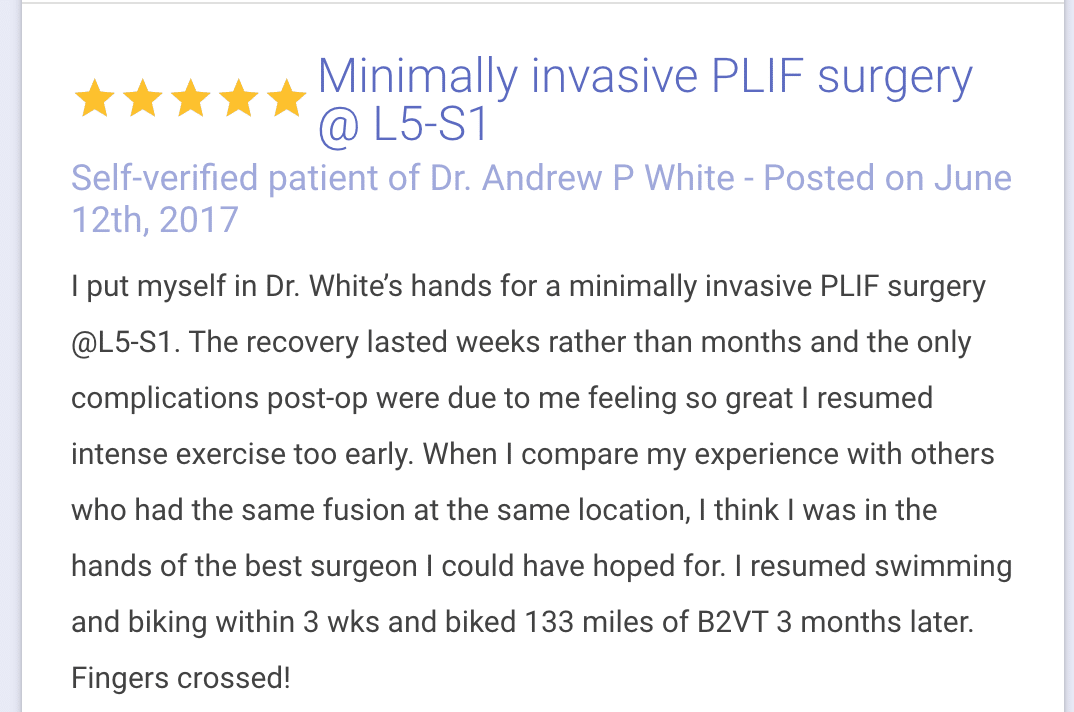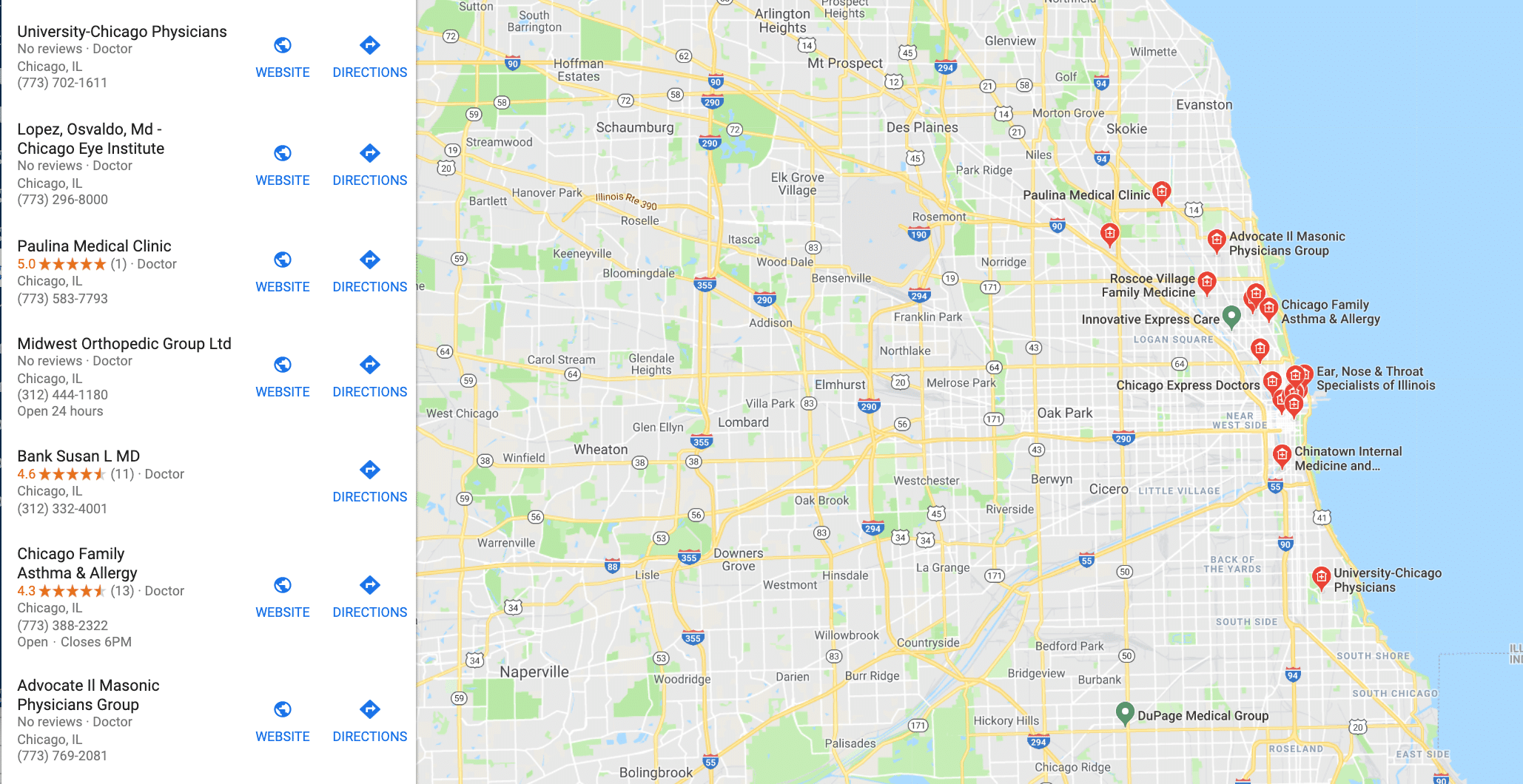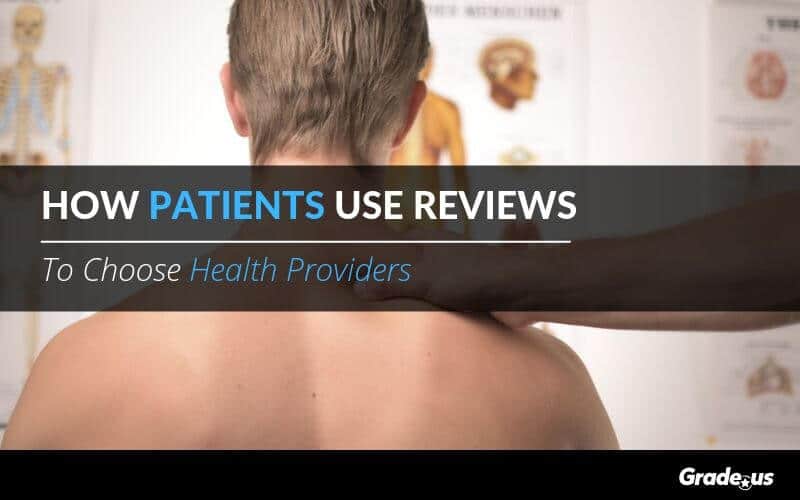Healthcare Industry Review Management Tips and Insights noted five things patients look for when they're evaluating a health provider, according to the research.
To recap, they were:
- Whether the doctor and staff were compassionate and respectful
- Whether the facility respects the patient’s time
- Whether the doctor spent enough time with patients
- Whether the patient receives safe care
- Whether there were problems and surprises with the billing process
These were generalizations. They didn't necessarily offer a lot of insight into the exact thought process patients might be using when they evaluate reviews. This initial list also overlooked some highly specific issues health providers should be aware of.
Here are a few of those issues, as told by individual patients.
Patients look for reviews that mention doctors, nurses, and staff members by name
"Reviews that mention staff by name show the staff members have made a good enough impression for the patient to remember their name and to feel obligated to leave a glowing review," says Brett Downes, of UK-based marketing agency DFY Links.

What leaves this impression? Warmth. Kindness. Qualities also known as "bedside manner."
"If the provider seems to be lacking in bedside manner and has reviews stating their personality is off, I'm wary," notes Beverly Friedmann, a Content Manager at product-based review site Reviewing This. "I would much rather wait to see a provider or pay a higher copay for someone with an excellent bedside manner."
Note:
Bedside manner doesn’t just happen at the bedside. It starts when the patient calls to make an appointment. With how patients are treated at every step of the process.You can influence this review factor by encouraging everyone in your office to greet the patient by name, and to give their own names.
Example:
"Great to see you, Ms. Smith, I'm Christy and I'll be getting you checked in today."
Or:
"I'm Jonathan, I'm going to get your vitals taken for the doctor."
You also should take a moment to evaluate the experience through the patient's eyes.
You can't help it, of course, if you're a great doctor who just happens to be interpersonally awkward. Some people just aren't social butterflies. Still, basic courtesy and genuine empathy can go a long way even if you're a little brusque, brunt, or awkward by nature.
For those of you who think you're absolutely delightful?
Be careful about jokes.
Be really, really careful about jokes. Not everyone experiences humor the same way. Nobody wants to feel made fun of when they're puking into a bucket or when they're already feeling vulnerable because they're sitting on an uncomfortable exam table with tissue paper crinkling away every time they move. If you want to joke about something to break the tension, for the love of god don't make the joke about the patient's body or their condition.
Patients seek out reviews that talk about the results
Downes admits he often only cares if the medical center will give him the results he was looking for, and so looked for reviews that mentioned specific conditions and outcomes.
This may seem a little unfair. Medicine doesn't deliver the same outcome every time. Every person's body is different, unexpected complications spring up all the time, and even diagnosis can be tricky. Savvy patients know this, but they want to give themselves the best chance they can get at finding relief for their conditions.



Still, if you have given a patient a good outcome, it is worth adding language that might prompt them to talk about it to your review emails.
For example, you could say: "If you're happy with the results of your care, please take a moment to leave a review."
If you have 100 reviews and 60 of them talk about how well a procedure or regimen of care went, that's a pretty good indicator that your medical center is a good bet for that condition.
Patients examine the quantity and quality of reviews
There's really no getting around the need for a robust review profile in any industry. Medical centers are no exception.
Writer Will Hatton says, "If you've been in business for over two years but have less than 5 reviews, that's suspicious. Any company with less than 5 reviews means you haven't provided service that's good enough for even a small percentage of customers to leave one."
You don't necessarily need to focus on getting glowing 5-star reviews all the time either. A little bit of realism goes a long way, says Jon Deak, CEO of Hot Juice. "If a healthcare provider has more than 20 reviews and has a pure 5-star rating, then that is a red flag to me."

Deak says this sort of profile leads him to suspect false, paid-for reviews.
"Even a perfect business, if it exists, will have at least one customer who will find fault and who leaves a poor review, or even just a 4-star one."
So if you're manipulating reviews, stop: it's a deal-breaker and customers can tell. If you're not, work on creating a review strategy that generates a wide variety of honest reviews on the 6 most major review sites: Google My Business, WebMD, Healthgrades, RateMDs, Zocdoc, and Vitals.
Patients look for reviews that mention your facility's medical approach
Different patients will look for different medical approaches, of course, but here's an illustrative example.
"I look at whether reviews mention integrative health. I believe in alternative medicine and I believe in Western medicine," says Sara Routhier, Managing Editor at 360 Quote. "My medical doctor needs to be okay with, and ideally supportive of, my visits to alternative medicine practitioners. I can't have an argument every time I visit my MD."
Obviously not every patient is looking for integrative health.
Patients do, however, want to know that your health philosophy aligns with theirs. Sure, most patients haven't gone to medical school, but they do know what's worked for them in the past and what they're comfortable with. Some will look for a provider that offers a very conservative and thorough approach. Some want cutting edge tech.
To influence this review factor, identify your practice's strength and really ramp up the messaging around that strength. If it's on your website, your GMB page, and your social media profiles it's something customers will gravitate to when they choose you anyway, and something they're likely to mention when they leave a review.
Patients look for providers who reflect their values
"I look at whether they are LGBT+ friendly," says Kenny Screven, LGBT activist. "I want a healthcare provider that specializes in issues I might have."
As with medical approach, this is going to be different for every practice.
There are practices that specialize in being sensitive to the religious values of the people who will be receiving care there. Practices that are all about being inclusive and safe, like the ones Screven looks for. Practices who have native speakers of different languages on staff and so are welcoming to immigrants.
Maybe your value is just, "We provide the highest level of medical care we can to whomever walks through our doors and we don't ask too many questions about your personal life." That's a value too.
Feel like your practice doesn't really stress any particular value in a noticeable way? That's fine, and you don't have to make an issue of it if yours doesn't.
If you can identify something, again, make sure it makes it into your overall messaging. Those who are drawn to those values will tend to mention them in reviews as you attract them to your practice.
How to use these insights to your review management advantage
These healthcare marketing insights won't do you as much good as they could if you don't have a good review strategy foundation in place. You can achieve this by:
- Launching a review strategy that contacts patients to ask them for a review.
- Responding to every review, both good and bad.
- Running a 5-star practice to the best of your ability.
If you don't have these basics right all these other tweaks won't do you a lot of good.
If you do? Making these adjustments can help you build a more profitable practice, one filled with loyal patients who want to stick with you for years to come.
About the Author
Raney C. Hudson
Raney C. Hudson is an independent content consultant with a 10+ year track record in the digital marketing industry.











